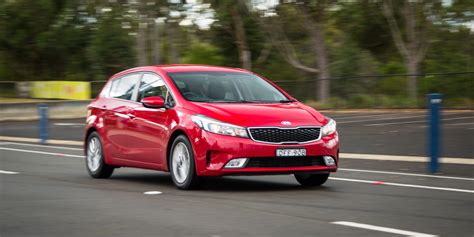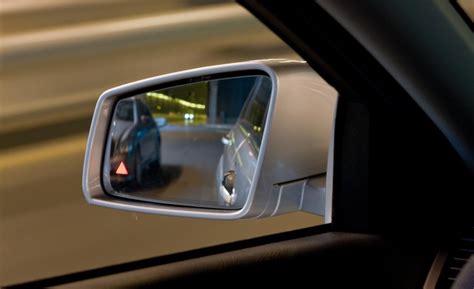Kia and Hyundai are two of the biggest car manufacturers in the world. Both companies are based in South Korea, and both produce a wide range of vehicles, from small city cars to large SUVs. Although both companies are based in the same country, they operate independently of each other, and have their own distinct styles and identities. So, what makes Kia different from Hyundai?
The most obvious difference between Kia and Hyundai is in their branding. Kia has traditionally focused on offering high-quality vehicles at an affordable price, while Hyundai has leaned towards premium and luxury vehicles. This means that Kia models are generally less expensive than Hyundai models, although there are exceptions to this rule. In terms of design, Kia tends to be more conservative, while Hyundai models tend to be more stylish and modern.
In terms of features and specifications, Kia and Hyundai models tend to be quite similar. Both companies offer a wide range of features, such as advanced safety systems, infotainment systems, and driver assistance features. However, Kia models tend to have slightly better fuel economy, as well as better interior space and cargo capacity. Kia also offers a wide range of customization options, allowing customers to choose from a variety of colors, trims, and accessories.
When it comes to reliability, Kia and Hyundai are both highly rated. However, Kia models tend to have a slightly better reputation for reliability, with most models offering a five-year/60,000-mile warranty. Hyundai, on the other hand, offers a 10-year/100,000-mile warranty on most models, making it a better choice for those looking for a long-term commitment.
Finally, it’s worth noting that Kia and Hyundai have different models available. Kia has a wide selection of compact and mid-size cars, as well as SUVs and crossovers, while Hyundai has a more focused lineup, with a greater emphasis on luxury vehicles. Kia also offers more affordable electric vehicles, such as the Soul EV, while Hyundai offers more expensive options such as the IONIQ.
In conclusion, Kia and Hyundai are two very different car companies. While both offer high-quality vehicles at an affordable price, Kia focuses on offering more practical models, with better fuel economy and cargo space, while Hyundai emphasizes more luxurious and stylish models. Ultimately, the best car for you will depend on your personal preferences and budget.
Comparing Kia Vs Hyundai: Niche Features
Whether you’re considering a Kia or Hyundai for your vehicle purchase, it’s important to weigh the distinct differences between the two. The vehicles of both Kia and Hyundai have a wide range of similarities, but they also have plenty of differences when it comes to niche features. Kia and Hyundai are both leaders in the automotive industry in terms of quality, value, and reliability.
Kia offers a variety of high-end models, while Hyundai is more focused on the mid-range segment. While Kia is more likely to offer a sleek design and luxury amenities, Hyundai is more focused on performance and affordability. Kia has a higher starting price point than Hyundai, and its vehicles tend to be bigger and more powerful. Kia also tends to offer more features, such as advanced driver-assistance systems, higher-end audio systems, and advanced safety systems.
When it comes to safety, Kia and Hyundai have similar offerings. Both brands offer advanced airbags, active lane-keeping assists, blind-spot monitoring systems, and pedestrian detection. Kia, however, goes a step further by offering an available Advanced Driver Assistance System which offers more advanced features like adaptive cruise control, automatic emergency braking, and lane-centering.
Kia also offers an optional engine technology, called Eco-Dynamics, which helps to improve fuel economy. This technology is offered in some of Kia’s higher-end models, and the company claims that it can improve fuel economy by up to 10 percent. Hyundai, on the other hand, does not offer a similar technology.
Kia also offers a variety of engines, ranging from turbocharged four-cylinder engines to high-performance V6s. Hyundai also has a wide range of engines available, but the company’s focus is on efficiency. Hyundai’s engines are designed to deliver good fuel economy, and the company has developed several hybrid and electric powertrain options.
Kia and Hyundai both offer vehicles with a variety of features and price points. Kia has a higher starting price point than Hyundai, and its vehicles tend to be bigger and more powerful. Kia also offers an optional Eco-Dynamics engine technology which can improve fuel economy, while Hyundai offers a wide range of efficient engines. Kia’s advanced driver-assistance systems, higher-end audio systems, and advanced safety systems may be more desirable than those offered by Hyundai, but there is no clear winner when it comes to niche features.
While both Kia and Hyundai have great offerings, it’s important to compare them and decide which features are most important to you. By taking the time to compare the two brands, you can be sure to find the perfect vehicle for your needs.
Comparing Kia Vs Hyundai: Top-Searched Performance
Kia and Hyundai are two major car brands that are often compared when making a purchasing decision. As one of the top-searched performance vehicles, both Kia and Hyundai offer a host of features and competitive prices. When it comes to distinguishing the two, there are a few key differences.
The first is in terms of powertrains. Kia offers several engine options to choose from, including a 2.4-liter four-cylinder and a 3.8-liter V6, while Hyundai offers a 2.4-liter four-cylinder, a 3.3-liter six-cylinder, and a turbocharged 2.0-liter four-cylinder. Kia also offers a hybrid option, while Hyundai does not.
When it comes to fuel efficiency, the two brands come out fairly even. The Kia is slightly more fuel-efficient, with the 2.4-liter option returning 22 miles per gallon (mpg) in the city and 33 mpg on the highway. The Hyundai is slightly less efficient, with the 2.4-liter returning 21 mpg in the city and 32 mpg on the highway. Both brands offer similar features, such as Bluetooth connectivity, a navigation system, and a rear-view camera.
In terms of price, Kia is slightly more affordable than Hyundai. The Kia Forte is priced starting at $19,900, while the Hyundai Elantra is priced starting at $21,000. Both cars come with a wide range of options, such as a sunroof, leather seats, and a power liftgate.
In terms of safety, both Kia and Hyundai have earned top safety ratings from the Insurance Institute for Highway Safety. Both brands offer a host of advanced safety features, such as blind spot monitoring, lane keep assist, and automatic emergency braking.
Overall, Kia and Hyundai both offer competitively priced performance vehicles with plenty of features and top safety ratings. When it comes to powertrain options and fuel efficiency, the two brands are fairly even, though Kia offers a hybrid option. In terms of price, Kia is slightly more affordable.
The following table summarizes the key differences between Kia and Hyundai:
| Kia | Hyundai |
|---|---|
| 2.4-liter four-cylinder | 2.4-liter four-cylinder |
| 3.8-liter V6 | 3.3-liter six-cylinder |
| Hybrid option | No hybrid option |
| 22/33 mpg | 21/32 mpg |
| Starting at $19,900 | Starting at $21,000 |
Kia is a South Korean car manufacturer with a different style, technology, and price range than Hyundai.
Kia produces cars, SUVs, minivans, and hybrids.
Kia cars have consistently ranked as some of the most reliable cars on the market.
Kia parts are typically more affordable than Hyundai parts.
Kia cars tend to cost slightly less than Hyundai cars.
Kia offers a 10 year/100,000 mile warranty which is more comprehensive than Hyundai’s 5 year/60,000 mile warranty.
The better car depends on the individual needs of the driver. Both Kia and Hyundai offer reliable cars that are affordable.
Kia cars come with advanced safety features such as lane departure warning, blind spot detection, and automatic emergency braking.
Kia cars feature the latest technology such as Apple Carplay and Android Auto as well as advanced infotainment systems.
Kia offers 24/7 roadside assistance and customer service as well as a comprehensive warranty program.






